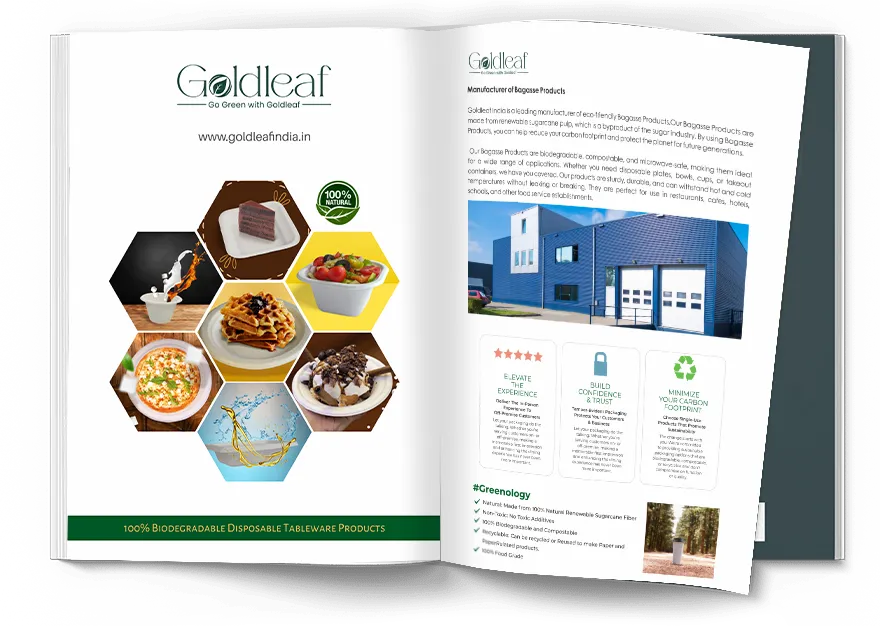Связаться с нашей командой
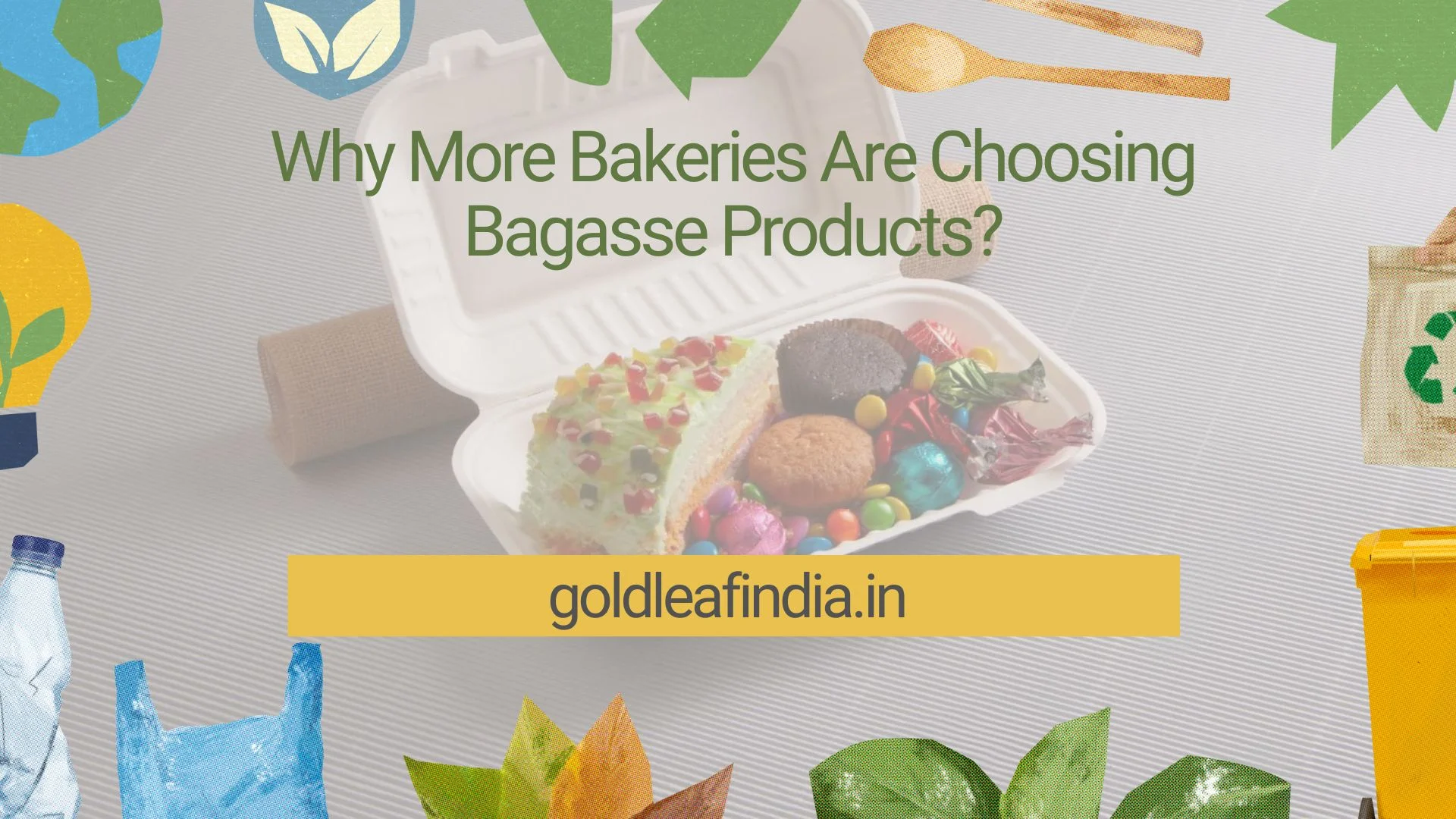
- 2110
Introduction
What is beyond a trend in switching to the entire range of bagasse products in bakeries? It talks of a greater commitment to the requirements of sustainability in the food industry. With consumers increasingly raising their voice to bring about more awareness and surmounting responsibilities about environmental concerns, bakeries are fast becoming sustainable packaging solution adopters to minimize their footprint on the environment.
The fastest-growing popularity of bagasse as a desirable replacement for eco-friendly packaging materials is the byproduct it aids in producing, subsequent to the extraction of sugarcane juice. Bagasse, simply put, is the fibrous residue left behind when sugarcane stalks are crushed to supply juice. This material used to be disposed of pursuant to tradition. Now, on the other hand, these give-aways result in diverse sustainable products-anything from plates and bowls made of bagasse to clamshells.
This contributes to the purpose that the food industry engages in sustainability. Bagasse products reduce the by-products that bakeries might otherwise produce as waste, conserve much-needed resources, and appeal to an increasingly expanding demographic-the concerned consumer.
Understanding Bagasse and Its Applications in Bakeries
What is Bagasse?
This is the fibrous residue left over after the extraction of juice by crushing sugarcane stalks. The by-product of sugarcane mainly consists of cellulose, hemicellulose, and lignin. Its fibrous nature makes it an excellent raw material for creating various sustainable products.
1. Bowls
2. Clamshells
3. Disposable tableware
How is Bagasse Made?
The bagasse process begins inside sugar factories where sugarcane is crushed. After the sugarcane juice has been extracted from the stalks for the production of sugar, the fibrous leftover is collected. The byproduct, once fuel or waste thrown away, now finds a new purpose through a number of processing techniques transforming it into different types of biodegradable products.
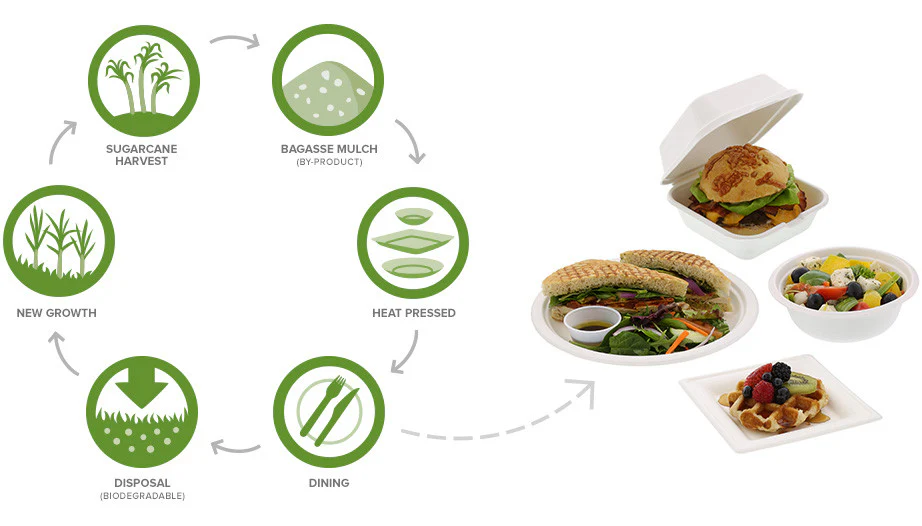
Types of Bagasse Products Used in Bakeries
The wide variety of bagasse-based products used by bakeries depends on the individual needs:
• Bagasse Bowls: Use for soups, salads and other meals.
• Bagasse Clamshells: Easy take away packing, sturdy, disposable and eco-friendly for your food.
• Bagasse Plates: Used to serve baked goods as well as other food items.
• Disposable Cutlery and Cups: Completes the range of environment-friendly bagasse tableware.
Benefits of Using Bagasse for Takeaway Meals and Baked Goods
There are quite a few benefits when you choose to use bagasse products:
• Biodegradability: Unlike plastic or foam, bagasse breaks down naturally.
• Compostability: That means it is suitable for use in industrial composting facilities, thus preventing the fresh contribution of waste to the dump.
• Grease Resistance: Bagasse products are great for oily or greasy foods. This ensures that the packaging remains intact.
• Heat Tolerance: This paper can resist very hot temperatures, and it is perfect for hot foods.
Selecting bagasse tableware and packaging keeps bakeries on the sustainable track while being surrounded by reality for their customers.
The Environmental Benefits of Choosing Bagasse Products Over Traditional Packaging Options
Why Bagasse is Better for the Environment
Bagasse is one of the best compostable packaging materials present because it breaks down naturally. While regular plastic takes hundreds of years to break down, bagasse-based packaging material composted will break down in 30 to 90 days. That means that the problem of packaging leaves much less of an environmental footprint.
The Problems with Traditional Plastic and Foam Packaging
Traditionally used plastic and foam packaging have long been reviled for their adverse impacts on the environment. These materials:
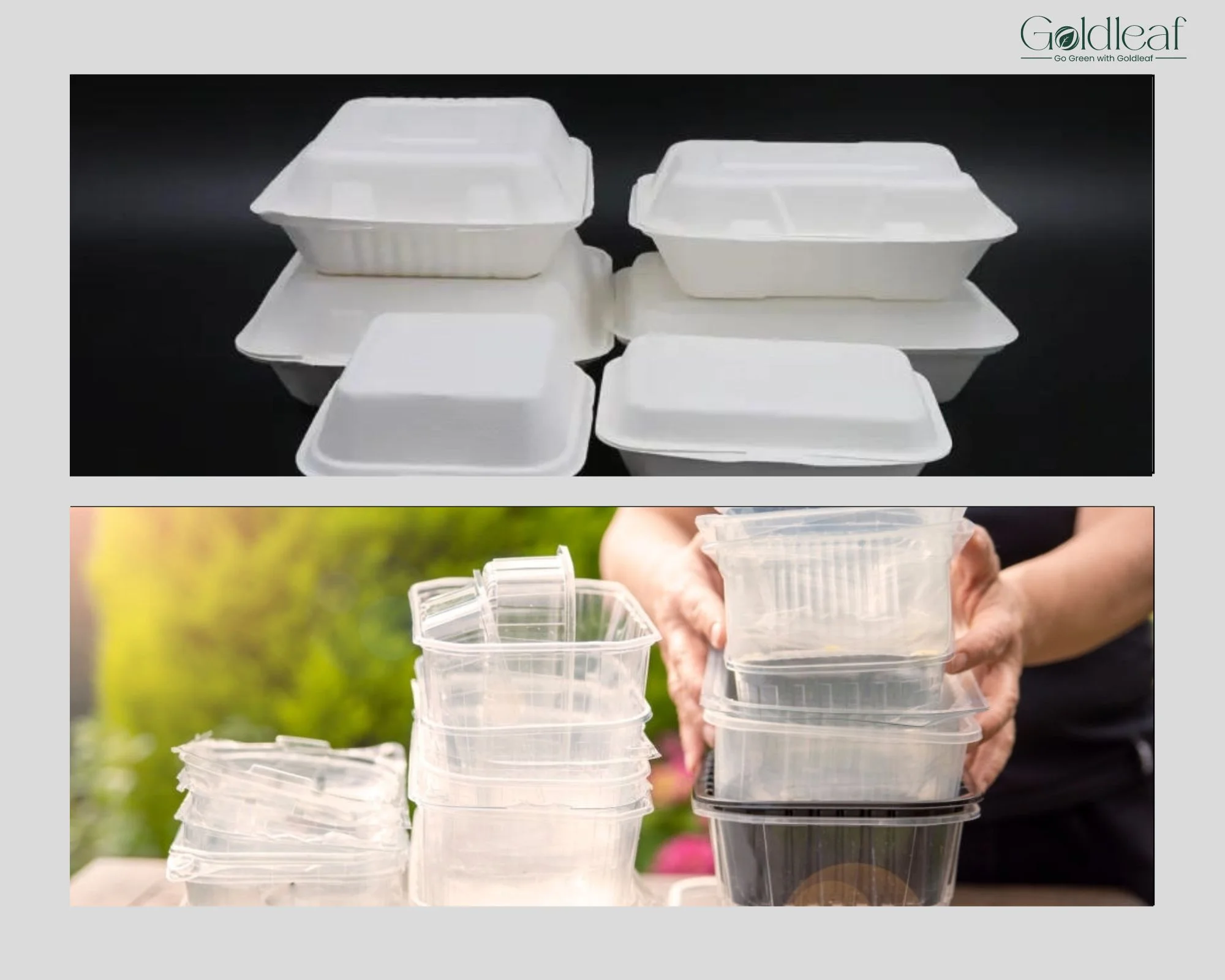
• Don't break down: Plastics can remain in the environment for thousands of years, making them a source of long-term pollution.
• Are hard to recycle: Many plastic and foam products are not recyclable; most end up as waste in landfills or the ocean.
• Use a lot of energy: Plastic and foam production consume large quantities of energy and release greenhouse gasses.
What's also worth pointing out is that not all compostable plastics are environmentally friendly.
How Bagasse Packaging is Better
Bagasse packaging, on the other hand, provides a lot more ways to be better for the environment:
• Less waste: Since it's compostable, the products from bagasse turn into usable compost, not waste.
• Lower carbon footprint: Energy needed in producing bagasse is lesser as compared to making plastics, thus fewer carbon emissions.
• Sustainable sourcing: Bagasse is considered resource-efficient since it comes from the leftovers of sugarcane, reusing the waste of agriculture into a product.
Why the Food Industry is Switching to Bagasse
Using products coming from bagasse resonates well with the demand of the food industry for compostable material. Past environmental concerns would be a secondary aspect as shifting toward sustainable practice directly relates with the aim of pro-green consumers on choosing greener alternatives.
Environmentally-friendly packaging can help bakeries save immensely on the environment while respecting consumer desires for sustainability. It's part of what will make the food service sector much more sustainable in the future.
How Bagasse Supports a Circular Economy in Bakeries
It is only by grasping the concepts of the circular economy that one can appreciate the opportunity that the use of bagasse brings to bakeries. A circular economy focuses on zero waste as it would use resources incessantly through closed-loop systems in which products are either repaired, reused, or recycled. This is different from the traditional linear economy where the system remains 'take-make-dispose'.
The advantage of upcycling bagasse is that their by-products do not contribute to environmental degradation. They become useful items rather than waste products, thus supporting the concept of sustainability in the food industry.
By using bagasse items, bakeries further support upcycling activities and create improved efficiencies in the use of resources.
Why Are More Bakeries Choosing Bagasse?
The significance of bagasse in promoting a circular economy is the primary reason why bakeries are increasing their adoption rate of using these items. Using a byproduct that would otherwise go waste supports pro-environmental behavior and contributes to significant reductions in footprints left on the environment.
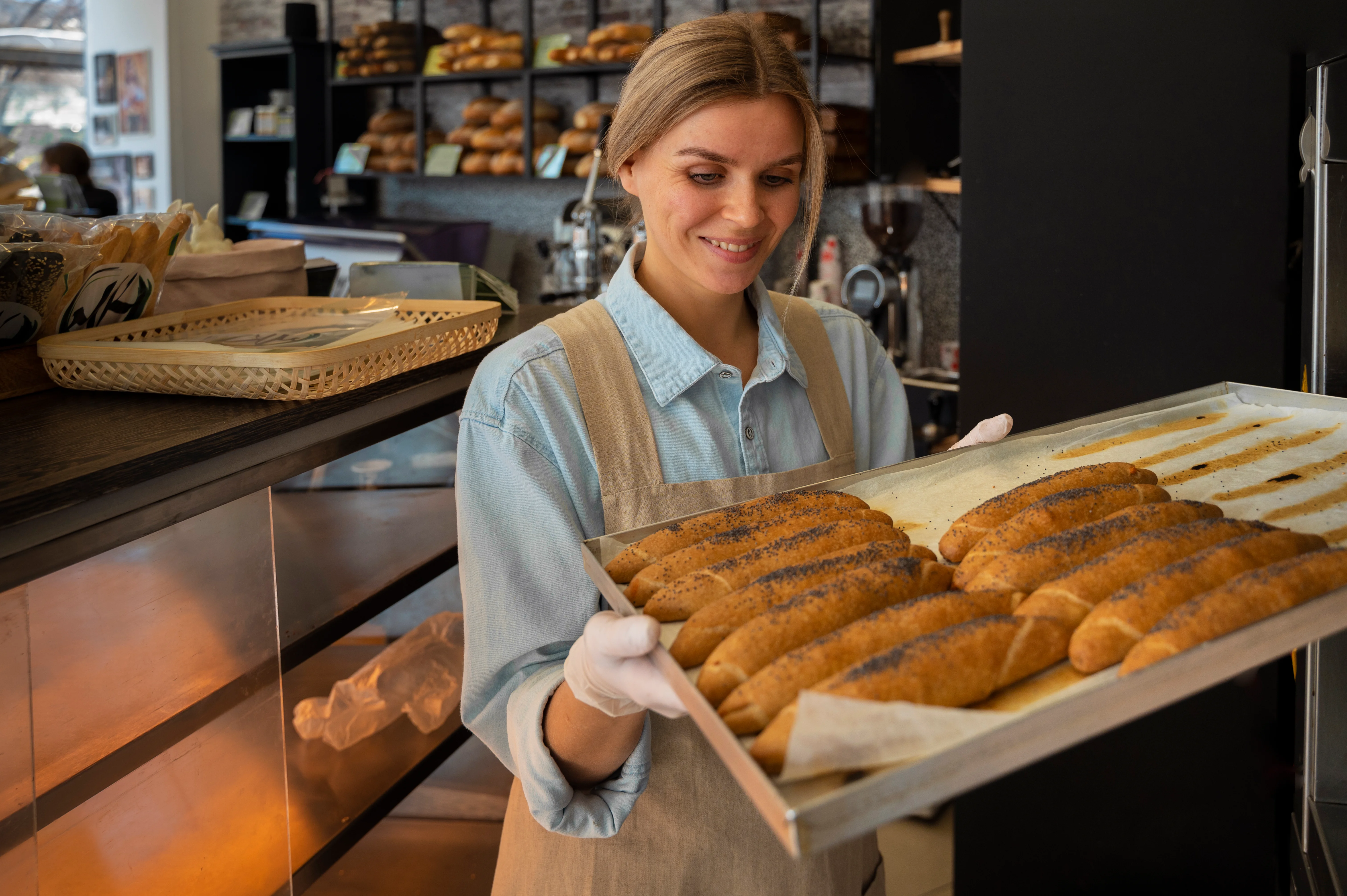
Recent research reveals that such a changeover to packaging with bagasse instead of glass also prevents waste as well as promotes a novel sustainable approach that attracts eco-friendly consumers. Meanwhile, bakeries eliminate waste while promoting a new approach to sustainability that appeals to environmentally conscious customers.
Attracting Eco-Conscious Consumers with Sustainable Packaging Choices
Consumer demand regarding the kind of food manufactured is now significantly influencing the food industry. Many consumers cherish earth-friendly practices and opt for businesses that share these values. Bakeries can firmly take advantage of this, adopting bagasse products in their packaging.
Why Bakeries Should Consider Sustainable Packaging:
• Environmental Responsibility: Accepting the bagasse packaging signifies a willingness to occupy less environmental footprint. This yields an avid customer who will gladly spend their hard-earned money by patronizing a business that makes room for sustainability.
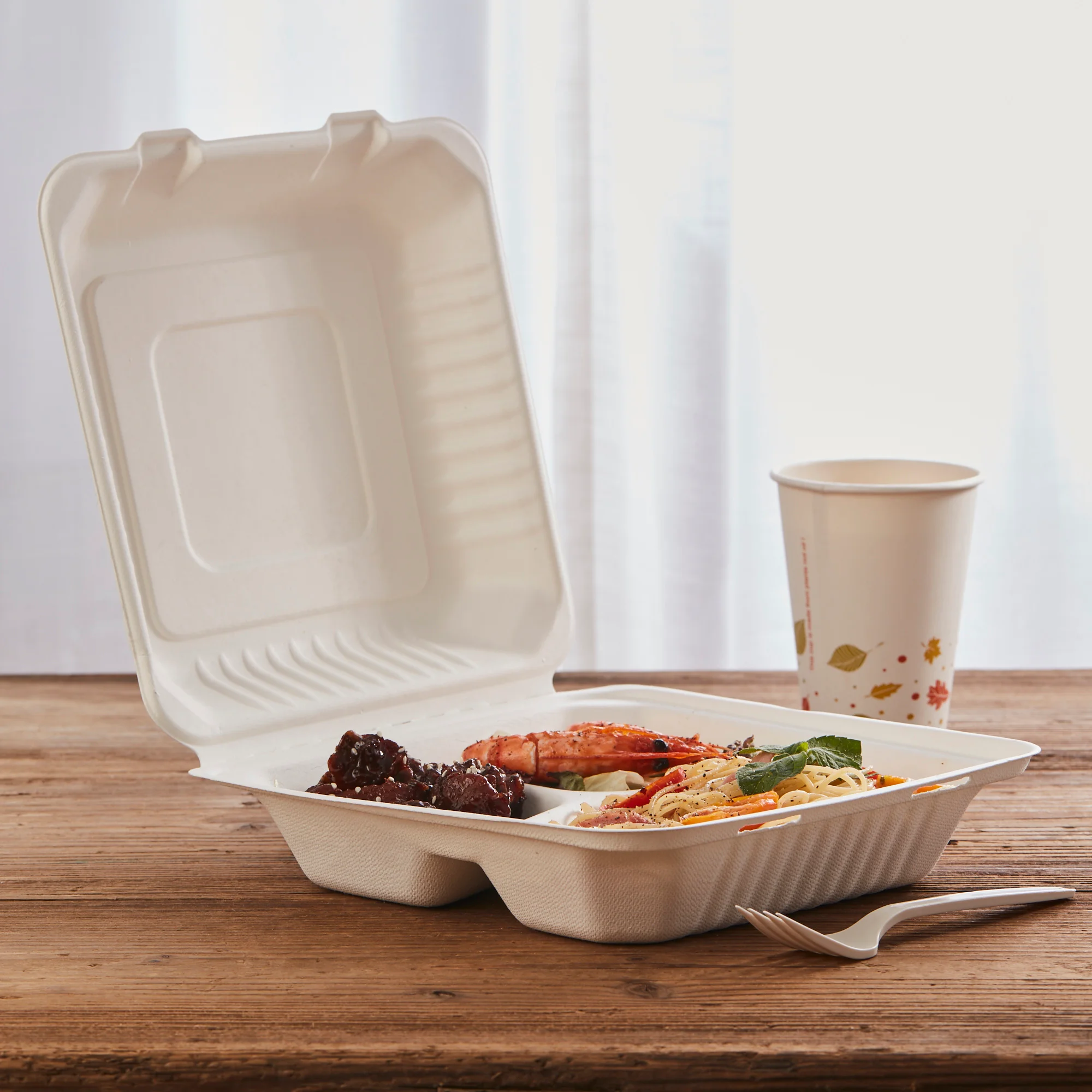
• Marketing Sustainability: Taking the aspect of compostable materials as a marketing tool ensures you attract a more diverse audience. For instance, spreading the word through social media or shop storefronts about the use of packaging with bagasse might improve the perception of your brand.
• Customer Loyalty: The options provided to the customer make them sustainable. The eco-friendly consumer is going to visit their favorite bakery several times as it also lives up to their policies.
How Bakeries Can Implement Sustainable Packaging:
• Takeaway Containers: Bagasse bowls and clamshells could be perfect for takeaway items where convenience and sustainability are both met.
• Disposable Tableware: For dine-in services, the use of plates and other utensils made from the disposables of bagasse will tell the world about your commitment to the cause of environmental protection.
As bakeries embrace these sustainable options, they reduce their negative impacts on the environment while getting in line with emerging consumer demand for sustainable products. This is a strategy that may benefit the bakery by increasing consumer satisfaction and therefore business growth.
Conclusion: Embracing the Future of Sustainable Baking with Bagasse Products
Environmentally friendly packaging solutions are no longer a trend but the need of the future for the baking industry. This transition to sustainability is not just the reduction of environmental impacts but also keeping in line with the increasing demand of consumers for responsible behavior. Why Are More Bakeries Choosing Bagasse Products?
• Environmental Benefits: Sustainable, compostable, and energy efficient.
• Consumer Appeal: It attracts environmentally conscious customers who wish to support the business by doing good business.
• Circular Economy Support: It turns waste into higher-order products and supports resource efficiency.
Join the movement and make your bakery part of the change. Make a decision to opt for bagasse products and pave the road to a greener tomorrow.
- Продукция
- Bowl
- Clamshell
- Compartment Plate
- Plate
- Tea Cup
© 2024 , Goldleaf ,
Все права защищены.
Made & Managed by Lightlink Solutions



